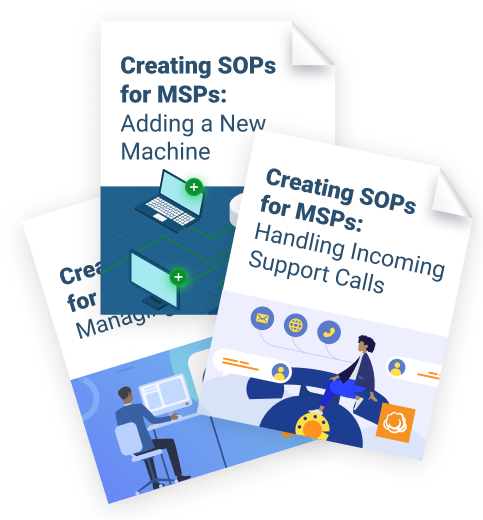When it comes to making technology investments in 2024, what are some of the most impactful areas that managed services providers (MSPs) can evaluate to grow their business? One clear emerging category is automation, which has seen incredible advancements and promise for MSP businesses in recent years.
Automation can mean many different things but, at its core, it refers to leveraging technology applications for tasks previously delegated to humans. Automation can take on varying complexity, from simple tasks to machine-based decision-making and actions. However, in every form factor, it is growing across both personal and business use cases.
Automation can significantly impact an MSP business, allowing it to take repetitive tasks that are time-consuming for humans to complete and turn them over to machines. For an MSP, this can save costs by maximizing the efficiency of the engineers on staff by relieving them of these tasks (which some estimates put at about 39 percent of their total time). In addition, it allows those engineers to focus on more complex projects, which is both more stimulating and rewarding for the engineer, as well as valuable to the clients.

Additionally, automation can enhance MSPs’ ability to support their customers quickly. By leveraging automation, MSPs can more promptly respond to customer tickets as they come in or take proactive steps such as patching, software updating, alert management, device deployment, and other items to prevent a ticket from being needed in the first place. In doing so, MSPs can increase customer satisfaction and lower their average time to resolution for issues.
Further reading 10 Tips to Improve Your Customer Service
Achieving these efficiencies and making the value-add transition is more important than ever. Like most tech companies, MSPs face significant hiring challenges due to an overall IT and tech talent shortage. In addition, more and more clients are turning to MSPs for help as their technology needs grow and budgets tighten, requiring MSPs to be more efficient. As a result, nearly 95 percent of MSPs surveyed recently said automating processes is necessary to achieve innovation and strategic goals.
There are several places within the organization that MSPs can look to automate. One common place that can have a significant impact right away is their core tools – their remote monitoring and management (RMM) or professional service automation (PSA) tools. Automation can help MSP engineers automatically keep watch over their customers’ environments and flag any potential issues that may arise, as well as help categorize their potential severity.
Automation can also help MSPs level up their capabilities around cybersecurity, an area that is more important than ever for clients and requires a swift and efficient response to potential issues. It can assist MSPs in automatically identifying and implementing the necessary security vulnerability patches, as well as identifying and monitoring the environment for potential threats and remediating any that may arise. Each of these tasks can be time-consuming when done manually, but automation can help augment the value that MSPs can provide in this area.
By implementing technology like automation throughout work processes, MSPs can improve their ability to support their customers quickly and thoroughly. In addition, as their business grows, MSPs can leverage automation to provide the same high level of service to their customers even as they scale their customer base. Each of these steps allows MSPs to secure happy, long-term customers, as well as set themselves up for long-term growth for many years to come.







